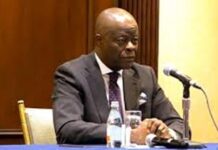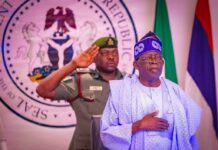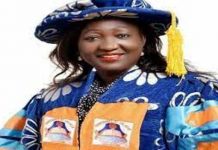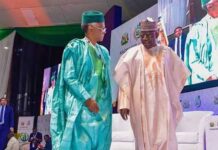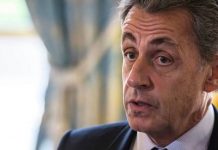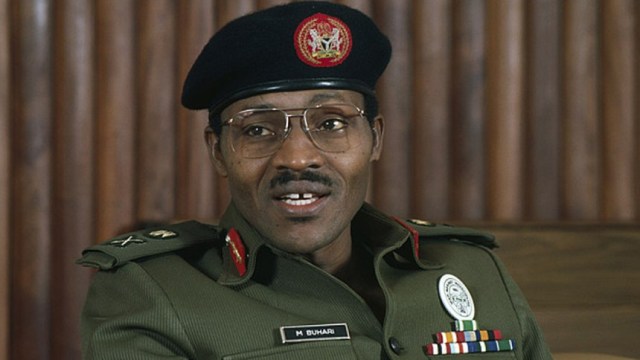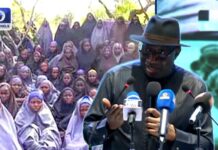The presidency has reacted to the yesterday’s editorial in
The Punch newspaper which criticised the administration of President Muhammadu
Buhari for serial disobedience to court orders.
It would be recalled that the paper had in its editorial entitles ‘Buhari’s lawlessness: Our stand,’ catalogued instances in which the federal government flouted court orders and trampled on the rights of citizens and stated its decision to henceforth refer to the president by his military rank, Major General.
Some of the familiar abuses include Gestapo-style raid on the Federal High Court Abuja by the Department of State Services (DSS) to re-arrest the convener of #RevolutionNow Protest, Mr. Omoyele Sowore, the continued detention since 2015 of the former national security adviser, Col. Sambo Dasuki in violation of several court orders including one by ECOWAS appellate court, violation of court order granting bail to the leader of the Islamic Movement in Nigeria (IMN), Mr. Ibrahim el-Zakzaky and wife, among others.
Punch said it would henceforth refer to the president by his last military title when he ruled Nigeria as a military dictator.
“As a symbolic demonstration of our protest against autocracy and military-style repression, PUNCH (all our print newspapers, The PUNCH, Saturday PUNCH, Sunday PUNCH, PUNCH Sports Extra, and digital platforms, most especially Punchng.com) will henceforth prefix Buhari’s name with his rank as a military dictator in the 80s, Major General, and refer to his administration as a regime, until they purge themselves of their insufferable contempt for the rule of law,” it wrote.
In its reaction, presidential spokesman, Mr. Femi Adesina said referring to Buhari by his military rank is a form of freedom of the press.
“Rather than being pejorative, addressing President Buhari by his military rank is another testimony to free speech and freedom of the press, which this administration (or regime, if anyone prefers: it is a matter of semantics) has pledged to uphold and preserve,” he said.
He said the rank is what the president attained by dint of hard work before he retired from the Nigerian Army and has become the democratically elected as President Commander-in-Chief of the Armed Forces under the 1999 Constitution as amended.
“All over the world, just as in our country, a large number of retired military officers are now democrats. It does not make those who did not pass through military service better than them,” he added.
Also reacting, another presidential media aide, Mr. Garba Shehu in a statement described the decision by the newspaper address Buhari as Major General in his official title and refer to his government as a regime instead of administration, as totally curious and utterly incredible.
Shehu said Buhari was indeed a Major General, but had retired from that position and now twice democratically elected president of Nigeria.
He added that Buhari was the two-time electoral choice of voters.
He said the newspaper’s opinion was entirely in line with holding and exercising the right of free speech and freedom of the press, as Adesina earlier said.
He aligned himself with the position of Adesina that the fact that the newspaper “can insult the president in a front page editorial and they go home to sleep, peacefully, is the best testimony to the prevalence of the freedom of the press and of expression in the country.”
Describing the newspaper’s decision to refer to the president by his military rank as unprecedented and absurd in Nigeria’s recent political history, Shehu said the newspaper never changed President Olusegun Obasanjo’s title from the president to General, despite the latter’s refusal to comply with Supreme Court judgment ordering him to release N30 billion of Lagos State local councils funds.
He also wondered why the newspaper did not challenge General Ibrahim Babangida who was not democratically elected but assumed the title of president; neither did it address him by any title it so desired even when Babangida closed media houses.
He accused the newspaper of playing partisan opposition politics, which he said had nothing to do with journalism.
“The constitution of Nigeria recognises the president as the formal official title of the occupant of that office. Is it within the paper’s responsibility or power to change the official title of the man who occupies the office of the president? Does that mean any newspaper is free to address the Comptroller General of Customs a Colonel rather than his official title?” he asked.
Shehu’s full statement below
The reported new editorial policy of the Punch Newspapers to address President Muhammadu Buhari as Major General in his official title and refer to his government as a regime instead of administration, comes to us as totally curious and utterly incredible.
The paper claimed that it is changing President Buhari’s official title to General because of his government’s alleged disregard for the rule of law.
Major General Muhammadu Buhari (rtd), for that is his title, and he was indeed a Major General, but today retired from that position and now twice democratically elected president of Nigeria – is not the choice of Punch Newspaper’s editors and owners, that is clear.
He is, however, the two-time electoral choice of the voters of Nigeria, those very people who Punch Newspapers described this morning as “lethargic”: a disdaining epithet apportioned to decent, hard-working, everyday Nigerians for not agreeing with, and for not having voted in line with their publication’s editorial and political opinions.
Punch’s editorial today is, however, entirely in line with holding and exercising the right of free speech and freedom of the press, as my friend and colleague, Femi Adesina said earlier today.
Femi, Special Adviser, Media and Publicity said the fact the Punch can insult the President in a front page editorial and they go home to sleep, peacefully, is the best testimony to the prevalence of the freedom of the press and of expression in the country.
To quote him, “rather than being pejorative, addressing President Buhari by his military rank is another testimony to free speech and freedom of the press, which this administration (or regime, if anyone prefers: it is a matter of semantics) has pledged to uphold and preserve.”
In countries around the world where this right does not exist, newspapers do not publish articles such as the one Punch did today; nor do they get to express political opinions contrary to that of government. The exact freedoms Punch claims are missing are self-evident here – in print, on the internet – for all Nigerians and the whole world to see.
There is nothing wrong with expressing contrary opinions to this government – nor being in opposition to the president: this is the right of very Nigerian.
However, calling for the armed overthrow of the democratically elected administration is a different matter entirely: this Punch has in no way done – but others who they seek to defend, have.
There is the difference. Punch: oppose the government as much as you want to.
We welcome your contribution to the debate. But we ask you not to throw insults at the good voters of Nigeria for not agreeing to your choice at the last election.
Oppose in good humour: for that is the mark of the true democrat – that which you purport to be.
It is not within the power or rights of a newspaper to unilaterally and whimsically change the formal official title or the designation of the country’s President as it pleases.
It is unprecedented and absurd in our recent political history. The Punch never changed President Olusegun Obasanjo’s title from the President to General Obasanjo, despite the latter’s refusal to comply with Supreme Court judgment, ordering him to release N30 billion of Lagos State local councils funds.
When General Ibrahim Babangida who wasn’t democratically elected assumed the title of President, why didn’t the Punch challenge him or address him by any title it so desired?
In fact, IBB closed media houses for several months and years, including Punch.
But the paper didn’t stop addressing him as President, despite the fact that he wasn’t elected.
It is obvious that the Punch newspapers are playing partisan opposition politics which has nothing to do with journalism.
The Constitution of Nigeria recognises the President as the formal official title of the occupant of that office. Can the Punch newspapers, in their hubris address the President as Prime Minister as it pleases?
Is it within the paper’s responsibility or power to change the official title of the man who occupies the office of the President? Does that mean any newspaper is free to address the Comptroller General of Customs a Colonel rather than his official title?
The Punch newspaper should separate journalism from partisan politics. What it is embarking upon is purely political and it is designed to play to the gallery and cause confusion.
Punch Newspaper’s double standards in cuddling some of our past dictators and their open contempt for President Buhari clearly show that the paper has sinister motives for its current curious editorial judgment. Its personal hatred for and animus towards President Buhari should not be allowed to becloud its good judgment.



